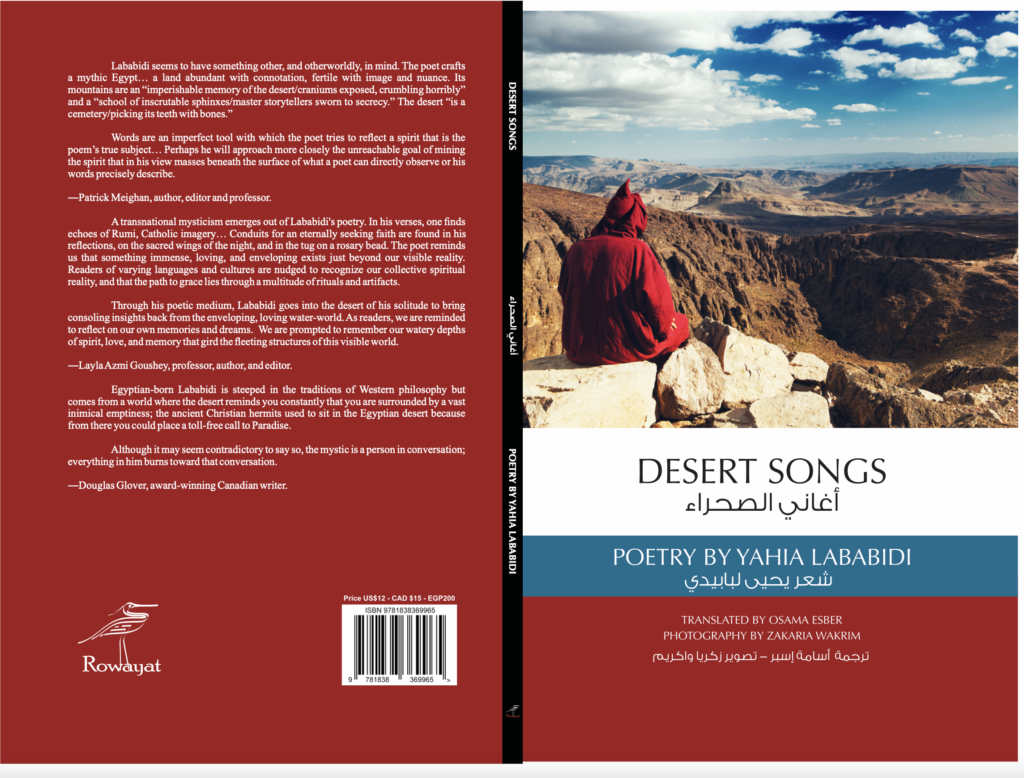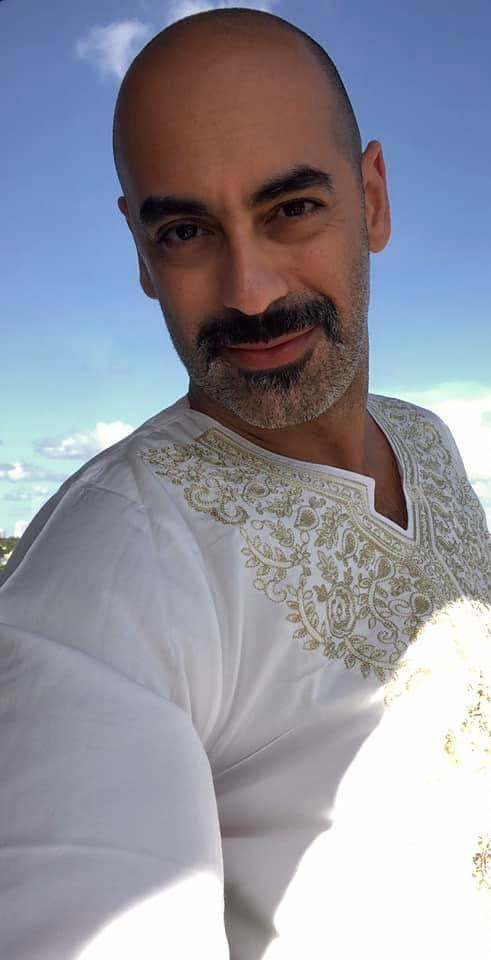
Exile is like the Desert, a homeland for God. * The Desert’s nakedness is borrowed from the sky’s. * Freedom is like the Desert: we only dwell in it in order to transcend it. * The Desert’s enchantment is borrowed from that of eternity. * The Desert, homeland for the spirit, exile for the body. * We go to the Desert in order to quench our thirst for freedom. —Ibrahim al-Koni, A Sleepless Eye: Aphorisms from the Sahara
When I lived in Cairo, Egypt, over a decade and a half ago, I would head to the desert periodically: to empty myself of the city’s noise, overhear myself, and then lose myself. I approached these desert pilgrimages with the earnest intention and passionate belief that I was going to encounter that part of myself not entirely accessible in other circumstances. In the desert, there is nothing to hide behind, nowhere and no one to turn to. It is where all those mad hermits and mystics—my people!—had their visions. It’s an extreme environment, and I suppose I felt that if I flirted with that extremity, in a committed, honorable way, a breakthrough might be granted to me. (If you were somehow avoiding yourself, and you went to the desert, somehow you would meet.) The rumblings of Eternity were there, if you could just be still enough, quiet enough, and indifferent enough to your self, your many selves, your many frivolous selves. Walking, reading, musing, I felt outside space and time and came to realize the necessity of aloneness: Aloneness as a prerequisite for the sublime sensations or epiphanies I sought. Sure, you could be alone around people, alone in your living room, but if you reached toward this elemental aloneness—one with the sand, the rock, the water, the stars, and the sea—you could experience a deeper innocence and purity of perception and as a result become a better witness to the life inside you and around you. The desert doesn’t, really, care much for you. It may, perhaps, want you there, but it doesn’t need you there. It doesn’t seek to appease you in any way. It only wants to declare its harsh, bold truths, and if you can stand it, then you might stay. What you hold in your hands is a slender packet of yearning; poems inspired by my desert retreats over the years. I did not, fully, recognize at the time the nascent thirst in these poetic meditations, or how the profound spiritual longing in these reflections was to mystically point for me the way towards a spiritual and religious life—a path I am exploring with wonder, and humbly deepening, nearly two decades later. It means a great deal to me that this poetry collection is bilingual and that my words will return to the part of the world that inspired them in its native language. I’m, especially, grateful that the Arabic is rendered by Osama Esber, a respected Syrian poet, translator and publisher whom I’m fortunate to call a friend and who, previously, has translated poetry of mine for Jadaliyya. All of the remarkable photographs accompanying my poems are by a gifted young Moroccan photographer I admire, Zakaria Wakrim, a kindred spirit who knows well the mystery and magic of the desert. Thank you, Rowayat, for bringing my words back Home, to my beloved Egypt. Yahia Lababidi, 2021
Solitude and the Proximity to Infinite Things The Desert is a cemetery picking its teeth with bones littered with brittle stones marked by a grave air. Mourning its myriad souls it murmurs threnodies, while winds scatter desert lament. Guarded, hostile growths defensive and aggressive martyrs to their desert mother they all wear crowns of thorns. Tortured trees break desert skin protruding stiff, bloodless veins blades of grass, yellow and dry shuffle from side to side, rigidly. Wanderers travel to see and hear Death-in-Life and Life-in-Death To see Stillness, to hear Silence Nothingness-punctuated-by-Space. Pitting its stare against the Sun the Desert returns it, pitiless unblinking, exchanging secrets of terrible, Eternal matters. Indifferent, like Time, to time resigned, without heart proximity to infinite things sets apart, makes remote. Underfoot, twigs and rocks crumble crack with ill humor and dry wit taking perverse pleasure in pain like one past suffering, yet bitter. The desert has its dark jokes over which it smiles alone, Mirage is the word for desert humor.

Yahia Lababidi is an Egyptian author of ten books. His most recent work is: Learning to Pray, aphorisms and poems (Kelsay Books, 2021), and Desert Songs, a bilingual photographic account of his mystical experiences in the deserts of Egypt (Rowayat, 2022) You can learn more about his work, here: https://www.goodreads.com/author/show/205852.Yahia_Lababidi
Readers can receive an aphorism of mine, daily, sent to their phone by signing up, here: https://dailywisdomtexts.com/yahia_lababidi
